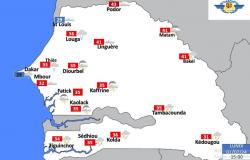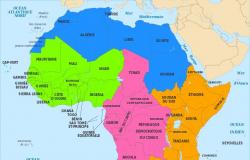(Geneva) Member countries of the World Health Organization decided Friday to grant additional rights to Palestinians, echoing a similar decision taken earlier this month by the United Nations General Assembly.
Posted at 4:52 p.m.
Member countries meeting this week for the World Health Assembly – the WHO’s highest decision-making body – voted overwhelmingly in favor of a draft resolution aimed at “aligning Palestinian participation” in the WHO with its participation in the UN.
Of the 177 countries with the right to vote, 101 supported the text, and five opposed it. The result of the vote, which was done by show of hands, was applauded for a long time.
The resolution, introduced by a group of predominantly Arab and Muslim countries, as well as China, Nicaragua and Venezuela, calls for the Palestinians, who already have observer status with the WHO, to be granted virtually the same rights as if they were full members.
The vote in Geneva came after U.N. members voted overwhelmingly earlier this month in New York in favor of more rights for Palestinians at the world body, after their campaign for full membership was blocked by the United States in the Security Council.
At the AMS in Geneva, the Palestinians and their supporters abandoned their demand for full membership. Several diplomatic sources suggested this was due to fears that a vote in favor of Palestinian membership could trigger an automatic suspension of US funding to the World Health Organization.
An accusation echoed by the Palestinian ambassador in Geneva, Ibrahim Mohammad Khraishi, who nevertheless welcomed the vote and promised to collaborate, including with “those who say that Palestinians do not have the right to vote” WHO.
He also reminded the American representative that the Americans had driven out their colonizer by force.
It is an inalienable right and an absolute right for us, when we are faced with genocide, to be able to exercise our right to self-determination.
Ibrahim Mohammad Khraishi, Palestinian ambassador to Geneva
The American representative, present in the room, took the floor to explain Washington’s opposition.
“The United States remains convinced that unilateral measures such as this decision will not achieve” the two-state goal. “The United States therefore voted no,” she said, estimating that Friday’s vote would bring “no concrete change” to the Palestinians.
The text approved on Friday, on the other hand, grants the Palestinians, among other things, “the right to sit among the member states, […] the right to submit proposals and amendments, […] (and) to be elected to the office of the plenary and main committees of the Health Assembly.”
It emphasizes, however, that “Palestine, as an observer State, does not have the right to vote in the Health Assembly or to present its candidacy to the bodies of the WHO.”
This adoption takes place against the backdrop of war between Israel and the Islamist group Hamas in the Gaza Strip.
The conflict was sparked by Hamas’ unprecedented October 7 attack on Israeli territory.
It led to the death of more than 1,189 people, mainly civilians, according to a count carried out by AFP based on the latest official data available. Of the 252 people taken as hostages during the attack, 121 are still being held in Gaza, of whom 37 have died according to the army.
In retaliation, Israel vowed to annihilate Hamas, which it considers a “terrorist” organization along with the United States and the European Union, and launched an offensive that has so far killed 36,224 people. in the Gaza Strip, according to the Hamas administration’s health ministry.






